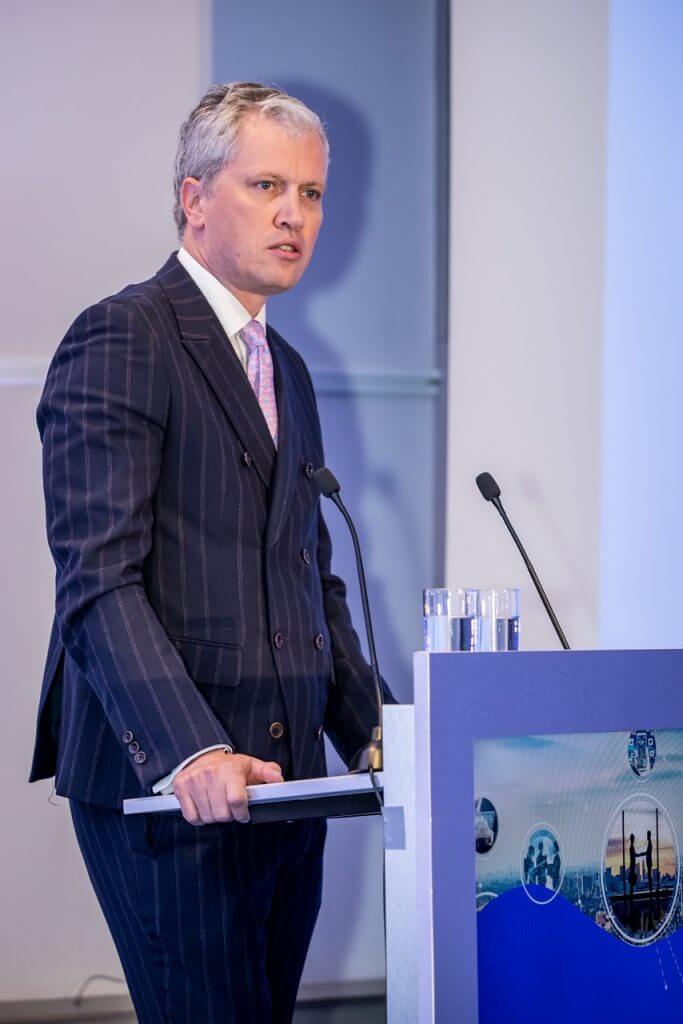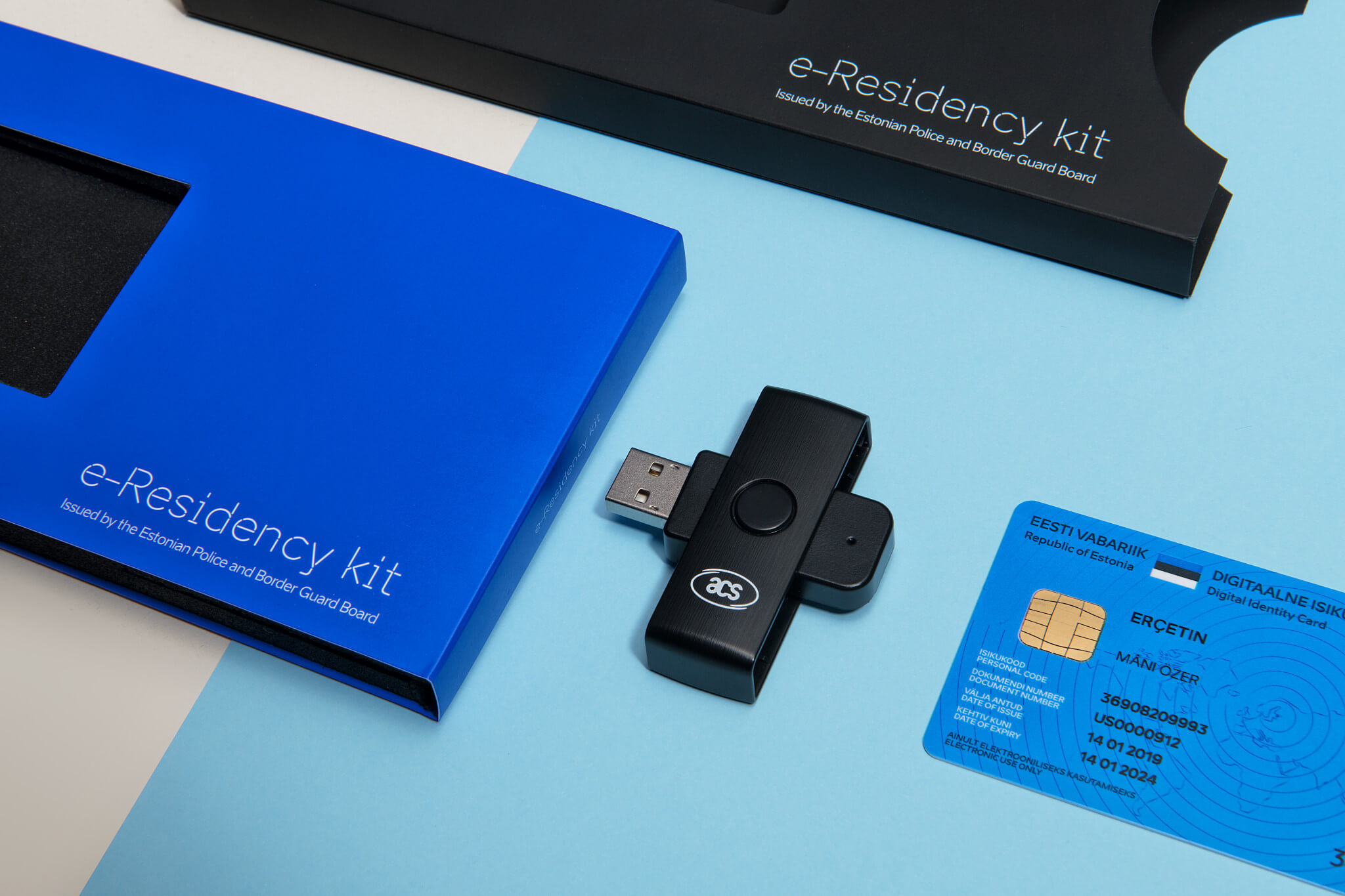The most advanced digital society in the world
Named ‘the most advanced digital society in the world’, Estonians are pathfinders, who have built an efficient, secure and transparent ecosystem that delivers great value during the pandemic and beyond, saving lives, time and money.
We had the privilege to interview Mr. Viljar Lubi, the Deputy Secretary General for Economic Development, to talk about his view on the future of work and Estonia’s e-services.
What do you think the future of work will look like in 5 to 10 years?
When people look back on the COVID-19 pandemic in generations to come, 2020 will be remembered as a year when digital innovation and technology showed its true value. Currently, both the private and public sector worldwide will have some reflecting to do on the best ways to accelerate the economic recovery post-crisis. Indeed, it is likely that the recent world-wide experience on how to embrace remote work, remote studies, and remote ways of doing business will accelerate further development of those practices. People will be much more comfortable today working remotely, the fear of unknown has decreased considerably. There has been a mental shift and this can lead to digital transformation in many areas.

Mr. Lubi at the Estonia-China trade conference in Tallinn, Estonia
The future of work will be very different in five or 10 years’ time. There will be much more freedom, individual responsibility, but also need for coaching and further training as skillset and career restarts will be increasingly common. The scenario where one retires after working for the same corporation for 40 years since graduation will not be common anymore. There will be more flexibility around working hours, deeper understanding on how to increase productivity through emotional connection and community spirit as well as how to cut the production and service costs in the technology-led, effective digital society.
In Estonia, we believe in collaboration with like-minded individuals and that solutions can be found in technology. As an almost fully digital society, we already have a strong foundation in remote work and remote business services. Over recent months it was put to the test, but proven that even for the public sector, the switch to remote work was swift and painless.
Estonia has been investing heavily in digital infrastructure, including e-voting, e-health, e-banking, and of course e-residency. When did this transformation happen, and why?
Estonia has been rapidly developing its digital society for over two decades. The digital transformation started with a sociopolitical clean slate that we faced after the regaining of independence from the Soviet Union in the early 90s. The first encompassing initiative was making digital education and tools available for the entire society. Estonians are a resourceful nation which already had remarkably good science education and research facilities during the Soviet occupation.
The digital education initiative ‘Tiger Leap’ was set up in 1997. It was a nation-wide initiative to invest heavily in the development and expansion of computer and IT network infrastructure in Estonia with an emphasis on IT training in all schools and communities. By the time electronic voting was introduced some 15 years ago, the public trust in e-services was already there. It is worth mentioning that the Estonian digital society is built on transparency. For example, every citizen owns their own data and has a full overview of who and when has checked this data. Data breaches can be easily detected and are a serious offence.
Six years ago, the e-Residency programme, a pioneering initiative, was developed. It was initially meant to help foreign investors and entrepreneurs residing in Estonia who missed out on access to Estonian digital services because they did not have an Estonian digital identification document.
Due to the e-Residency initiative introducing almost a full package of Estonia’s digital government services to foreigners, its popularity among non-resident entrepreneurs was immediate. Today, we have 70,000 e-residents of Estonia in over 170 countries around the world, many of whom can establish an EU company based in Estonia and run it remotely without setting foot in Estonia.

e-Estonia banner
When and why should people consider to apply for e-Residency?
e-Residency is a digital identity that gives any experienced or aspiring entrepreneur an opportunity to go global from the get-go, that is to establish an EU company based in Estonia online and run it 100% remotely. The whole process of company registration is fast, inexpensive, convenient and hassle-free.
Virtually, you do not need to leave the safety of your home no matter where in the world you’re located. It is easy to illustrate as this aspect brings in some added value right now, during COVID-19. You can use your e-resident digital ID in order to create a company and run it even from the Bahamas when this is where you choose to be located.
The Estonian tax system is pretty straight forward and uncomplicated for small business owners. There is a network of different companies that provide services to new entrepreneurs in order to make it easier to set up and run their business, starting from company creation to tax advice.
The e-Residency programme promotes values such as freedom, transparency, digital sustainability, and today also digital resilience. On the one hand you can run your business whilst travelling the world, but if the times are different, having your company completely location-independent can give a certain sense of security and flexibility.

e-Residency kit
What do you think is the reason not many other countries are investing even more to be on the frontline of digital?
There are many reasons, every country is different, its past experience, social and governmental traditions etcetera. We like to believe that we are all special and therefore our approaches need to be different. Everyone chooses their own way, but it will be digital for sure. This is the only way forward and the current situation illustrates it vividly. Not only can digital transformation safeguard businesses and governments in the global crisis situation and in the aftermath of a crisis, but it lays the foundation so that the economy can thrive in the long term.
Are there currently other projects in Estonia to support (digital) entrepreneurs or remote workers?
In Estonia we try to keep everything in close interaction. e-Residency is not a separate specific project, it is part of our overall e-government. And e-government is a platform that can also accommodate private services. For example all online bank interfaces are linked to our e-government services, they follow coordinated security protocols etcetera. Convenience is the keyword. If the e-services are not convenient to use, demand will not follow and the system will not see the political and also financial (investments) attention it should. We have the ‘Work in Estonia’ project that helps foreign workers to come and live and work in Estonia. Yes, most services can be online, but there are certain elements in life that need more than that, like finding a school for your kids or seeing a doctor.
I personally look forward to our next wave of invisible services, some steps in our daily affairs are known in advance for the government, we should smoothen the process. Let’s take the example of the birth of a child. You need a name, file for parental support etcetera, why would you need to spend even a second finding those services (even if they are online), government can do many things for you automatically, you just pick your choice and verify.

Mr. Lubi at the Accelerate Estonia launch event in Tallinn, Estonia
What are some of your favourite destinations to travel to and why?
I am a big traveller. I really do not have a single favourite, I have visited 100+ countries and I still feel that I have seen nothing.
What do you do to have your work and life in balance?
For me, the most important thing is that I would be happy every single Monday morning when I need to go to work (or start to work in the current situation). You should not hate Mondays, if you do, it already shows there is no balance. The second important element is that every evening I want to go home. Of course we always have days when we need to work extra hours but you need to rest also. It seems like a simple recipe but it is not. There is a fuzzy line between work and private life but it will not be so important anymore. Work is important, but always remember what it is that you are working for.
Watch the video below to learn even more about Estonia’s e-Residency programme
Or go to the official e-Residency website



